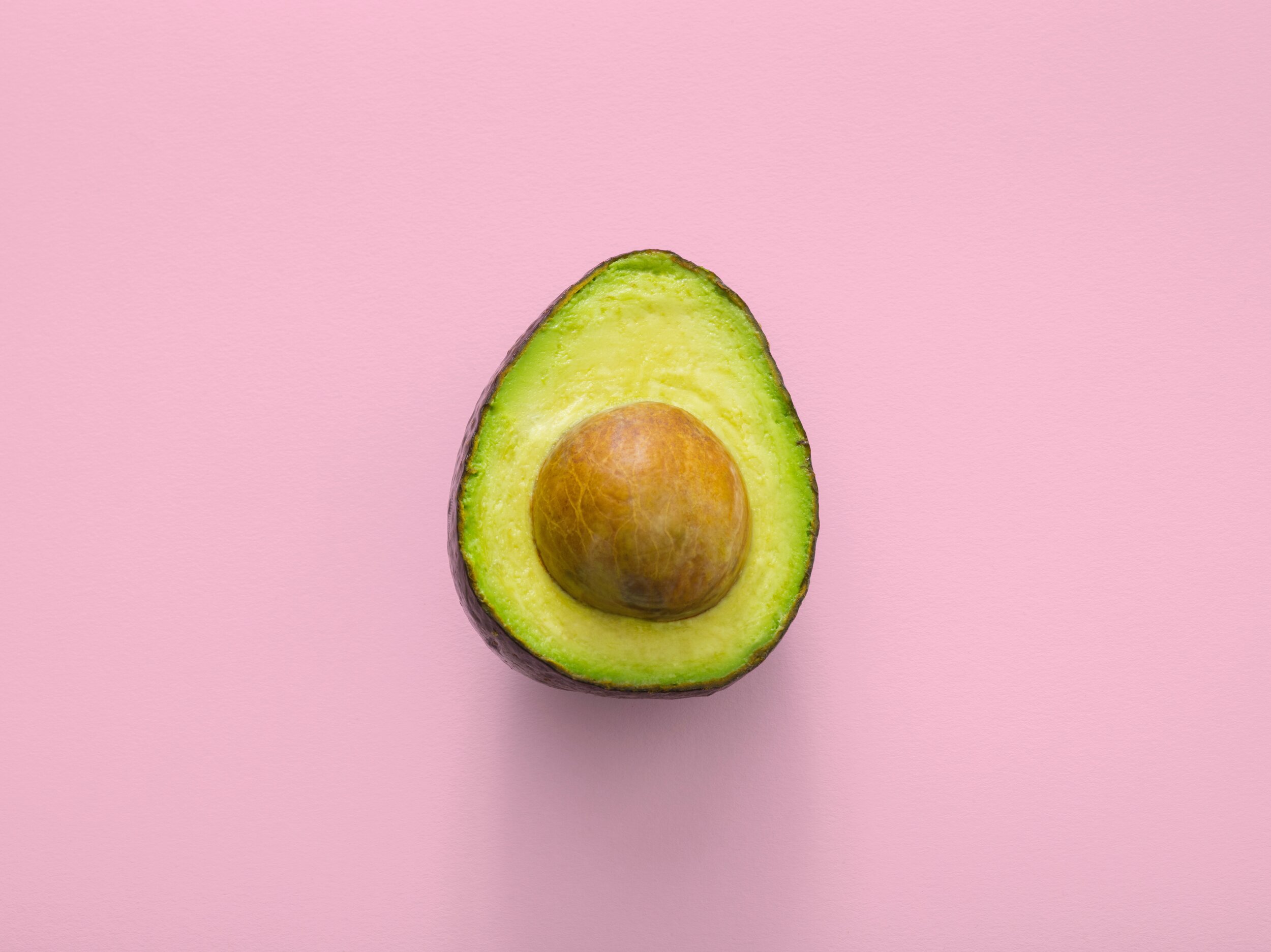The Truth About Dietary Fat
Most people are now aware of the negative impact of sugar on health. However, the fear of dietary fat still persists and many people don’t understand just how important good quality fat is for optimal health. Dietary fat was demonised in the 1960s, largely based on the work of Ancel Keys. However, we are now learning just how flawed his research was.
The low-fat diet has been a resounding failure and we now have record levels of obesity and disease, including cardiovascular disease - which is exactly what the low-fat diet was supposed to prevent. We now know that inflammation from eating too much sugar and processed carbohydrates leads to heart disease, not good quality fats.
In this article, I explain the importance of dietary fat, how to best include it in your diet and what fats are suitable to use for cooking. So, let’s start with a quick dietary fat 101.
Dietary fats are necessary for many functions in the body, including:
acting as building blocks for cell membranes and hormones;
providing long lasting balanced energy;
regulating the absorption of food, so we don’t get huge spikes in blood sugar;
helping us to feel fuller for longer;
helping us to regulate our inflammatory response;
helping us absorb the fat-soluble vitamins (A, D, E and K); and
best of all, fat makes food taste better.
An average adult has nearly 100 trillion cells and the cell membranes determine what can pass into and out of the cell to ensure optimal cell function and health. To ensure our cells are healthy, they are continually replaced whenever they become damaged, diseased or worn out. We need sufficient dietary fat to enable this ongoing process of cell renewal.
Without healthy cells, we cannot be healthy!
As you can see dietary fat is essential to the body, however not all fats are equal. Some are beneficial for the body and some are harmful, depending on how they are treated, stored and used.
Saturated fats are generally solid at room temperature and very stable. They include animal fats, butter, ghee and tropical oils such as coconut oil and palm oil. You can heat these fats without them degrading or becoming toxic to the body.
Monounsaturated fats are found in olives, avocados and many nuts and tend to be liquid at room temperature. They are less stable than saturated fats and should be stored in dark containers, as exposure to light will make the go rancid. They start to break down at high temperatures. Olive oil seems to be the exception and is considered safe for cooking.
Polyunsaturated fats (PUFAs) are very unstable and highly susceptible to light and heat. They go rancid very easily. Sources of Omega 3 polyunsaturated fats include fish oil, flaxseed oil and walnut oil. These oils are good for heart health. They need to be stored away from light and heat, in the refrigerator. These oils should never be heated.
Vegetable oils such as sunflower oil, safflower oil, corn oil and soybean oil are examples of Omega 6 polyunsaturated fats. These oils are highly processed and should not be consumed when heated, as they produce toxic by-products including aldehydes, which are linked to neurodegenerative diseases, heart disease and some cancers. Given that they are generally sold in clear plastic bottles, they are actually rancid before you even open the bottle.
When oils become rancid, free radicals are produced. Free radicals are highly reactive. They attack cell membranes and red blood cells and can cause cancers, plaque build-up in blood vessels, cardiovascular disease and premature aging of the skin.
Some healthy sources of Omega 6 fats include raw nuts and seeds and avocados. Whole food sources of Omega 6 fats contain nutrients that protect against oxidisation.
Canola, which is made from rapeseed oil, contains mostly monounsaturated fats, but also has a high Omega 3 content, which means that is goes rancid very quickly. It is highly processed, generally made from genetically modified plants and sold in clear plastic bottles. Canola is best avoided.
Most people eat way too many Omega 6s and not enough Omega 3s. This imbalance leads to inflammation and irritation of the digestive tract and other health issues. The ratio of Omega 6 to Omega 3 in the diet should be around 2:1. In the Western world it’s more like 20:1.
One of the reasons that this ratio is out of balance, is that vegetable oils are present in many processed foods. This is another reason to focus your diet around real food and not processed foods.
Vegetable oils are also used in many restaurants and cafes. They are often heated repeatedly in deep fryers, producing toxic by-products.
Hydrogenated fats are oils that have been chemically altered to be solid at room temperature, for example margarine. Trans fats are created during the hydrogenation process. The consumption of hydrogenated and trans fats is linked to a huge range of serious health issues and should be avoided at all costs.
So how do we eat healthy dietary fats? Some great sources of fat to include in your diet are:
Organic, grass-fed meats
Wild caught fatty fish
Organic, pasture raised eggs
Avocados
Nuts and seeds
Extra virgin olive oil
Organic, grass fed, full fat dairy products, if tolerated
Organic, grass fed butter and ghee, if tolerated
However, cut off the fat if you eat conventionally raised meat. Conventionally raised animals are exposed to a range of toxins and these are stored in their fat, to protect their vital organs.
My number one tip for a virtually effortless way to improve your health is to stop using vegetable oils, especially for cooking. Don’t be afraid to cook with the highly stable saturated fats such as coconut oil, pork lard, beef tallow or duck fat.
In summary, healthy fats are not the enemy. We need good fats in our diet for optimal health. Remember to focus on real food and avoid processed food as much as possible. Once you start inspecting nutrition labels for vegetable oils, you will be shocked to see just how prevalent it is.
The best fats for cooking
Grilling, frying, roasting etc:
Coconut oil
Organic, pasture raised animal fat
Ghee
Avocado oil
Light sautéing, quick stir-frying and baking:
Olive oil
Macadamia oil
Butter
Occasional use for quick stir frying:
Peanut oil
Sesame oil
Unsafe for heating:
Fish oil
Flaxseed oil
Hemp seed oil
Walnut oil
Pumpkin seed oil
Almond oil
Whole food sources of Omega 6s
Nuts
Seeds
Avocados
Fats to be avoided
Vegetable oils – Canola, sunflower, safflower, corn, soybean etc
Margarine
Hydrogenated or partially hydrogenated fats
Trans fats
References:
Chang, C.Y., Ke, D.S. and Chen, J.Y. (2009) Essential Fatty Acids and Human Brain. Retrieved from link
Fallon, S. and Enig, M. G. (1999). Nourishing Traditions – The Cookbook that Challenges Politically Correct Nutrition and the Diet Dictocrats. (Revised 2nd Edition) Brandywine, MD: New Trends Publishing.
Fallon, S. and Enig, M. (2000). Tripping Lightly Down the Prostaglandin Pathways. Retrieved from link
Haas, E. M. and Levin, B (2006). Staying Healthy with Nutrition – The Complete Guide to Diet and Nutritional Medicine. New York, NY: Ten Speed Press.
Kresser, C. (2019). How Industrial Seed Oils Are Making Us Sick. Retrieved from link
Marksteiner, K. (2019). Is it Safe to Cook with Olive Oil? Retrieved from link
Mercola.com (2011). Saturated Fat: The Forbidden Food You Should Never Stop Eating. Retrieved from link
Nutrition Therapy Association (2017). Cardiovascular Health Module Student Guide. Olympia, W.A.
Nutrition Therapy Association (2016). Fatty Acids Module Student Guide. Olympia, W.A.
Perlmutter, D. (no date). Your Brain Needs Cholesterol. Retrieved from link

